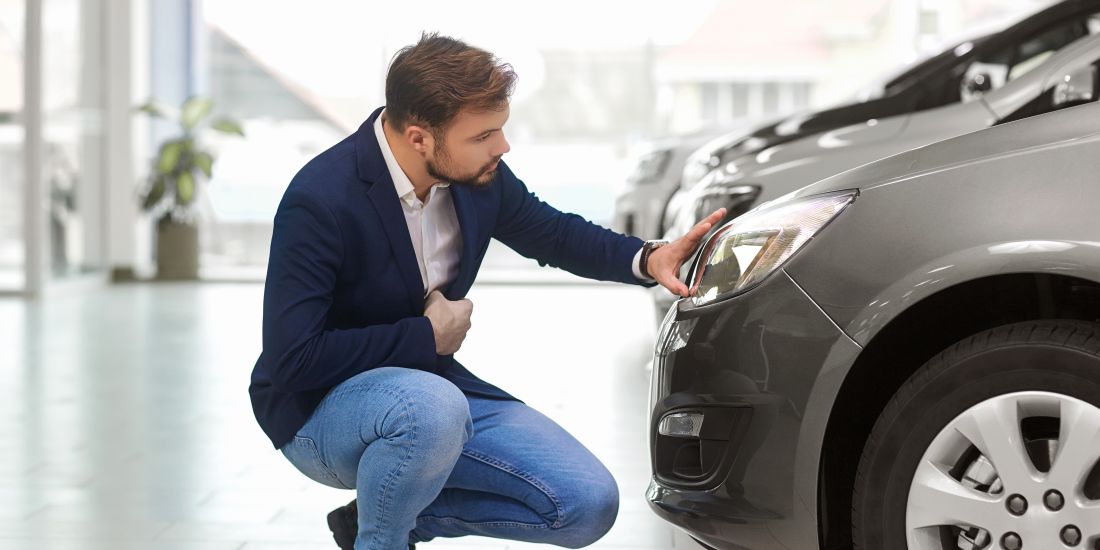How to Avoid Scammers When You Buy a Second Hand Vehicle?

When buying a second hand vehicle, the potential risks of getting scammed are high. Scammers use a variety of tactics to take advantage of unsuspecting buyers, and the consequences can be costly. However, there are steps you can take to protect yourself from scams and ensure that you get a good deal on your purchase. One of the ways to protect yourself when buying a second-hand vehicle is to look for certain features that can indicate the authenticity of the vehicle. One such feature is a license plate. A 3D license plate is a type of license plate that has raised lettering and numbers, which makes it difficult for scammers to replicate.
Do Your Research
One of the best ways to avoid scammers is to do your research. Before you start looking for a vehicle, you should research the make and model you’re interested in, the average price range, and the typical issues that can arise with that particular model. This information will help you determine if the seller is asking for an unreasonable price and if the vehicle has any common issues that you should look out for.
Purchase from a Reputable Dealer
Purchasing from a reputable dealer is one of the best ways to avoid scams. Reputable dealerships have a reputation to uphold and are less likely to engage in shady practices that could damage their reputation. When buying from a dealer, do your research on the dealership as well. Check their online reviews, ratings, and any other feedback from previous customers. You can also check with organizations like the Better Business Bureau to see if the dealership has any complaints against them.
Inspect the Vehicle Thoroughly
Before you purchase a second-hand vehicle, it’s important to inspect it thoroughly. Look for signs of wear and tear, damage, or rust. Check the mileage, the engine, and the transmission. Take the vehicle for a test drive and see how it handles on the road. If you need more time to inspect the vehicle yourself, consider hiring a professional mechanic to do it for you. An experienced mechanic will be able to identify any issues with the vehicle that you might miss.
Get a Vehicle History Report
A vehicle history report is a comprehensive report that provides information on the vehicle’s history, including its ownership, accident history, and any previous damage. This report can help you determine if the vehicle has been in any major accidents, has any outstanding recalls, or has any liens on the vehicle. It’s important to get a vehicle history report before purchasing a second-hand vehicle to ensure that you’re getting a safe and legal vehicle.
Be Wary of Low Prices
If a deal seems too good to be true, it probably is. Scammers often use low prices to entice buyers to purchase a vehicle in poor condition or with undisclosed issues. Make sure to do your research and compare prices before making a purchase. If a seller offers a significantly lower price than other sellers in the area, it could be a red flag that something is wrong.
Avoid Cash Transactions
Cash transactions can be risky when purchasing a second-hand vehicle. Scammers often ask for cash payments to avoid leaving a paper trail, making it difficult to prove that you paid for the vehicle if something needs to be fixed. Instead, consider using a payment method that provides protection, such as a cashier’s check or a bank transfer. These payment methods can help protect you from scams and provide a paper trail if something goes wrong.
Don’t Rush the Process
Buying a second-hand vehicle is a big decision, and it’s important to take your time with the process. Take your time to research the vehicle and the seller, inspect the vehicle thoroughly, and negotiate the price. If a seller is pressuring you to make a quick decision, it could be a sign that they are trying to scam you.
Verify the Seller’s Identity
When purchasing a second-hand vehicle, it’s important to verify the seller’s identity. Ask for a government-issued ID and proof of ownership, such as a title or registration. Make sure that the name on the ID matches the name on the title or registration. Scammers often pose as the owner of a vehicle they don’t actually own, so verifying the seller’s identity can help protect you from these types of scams.